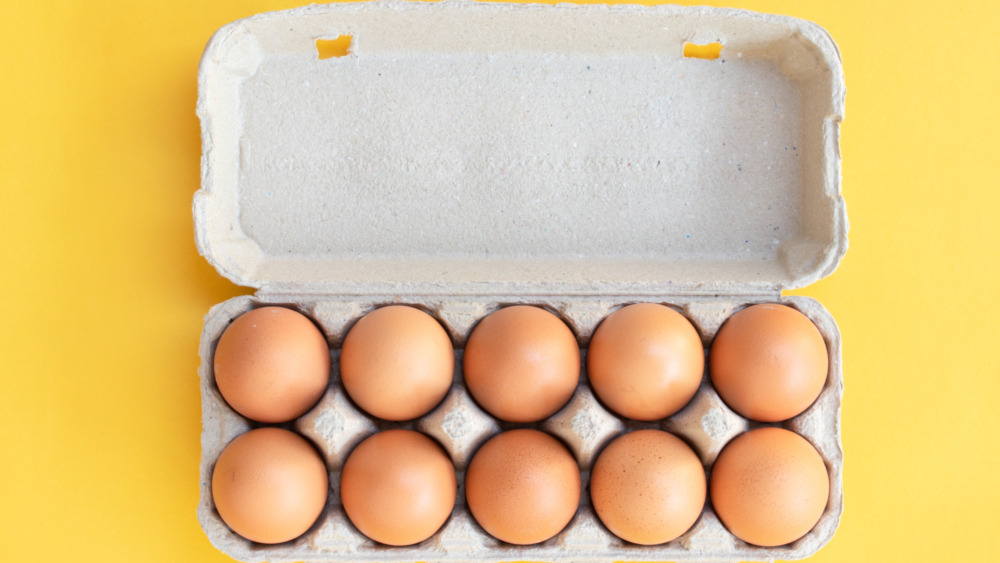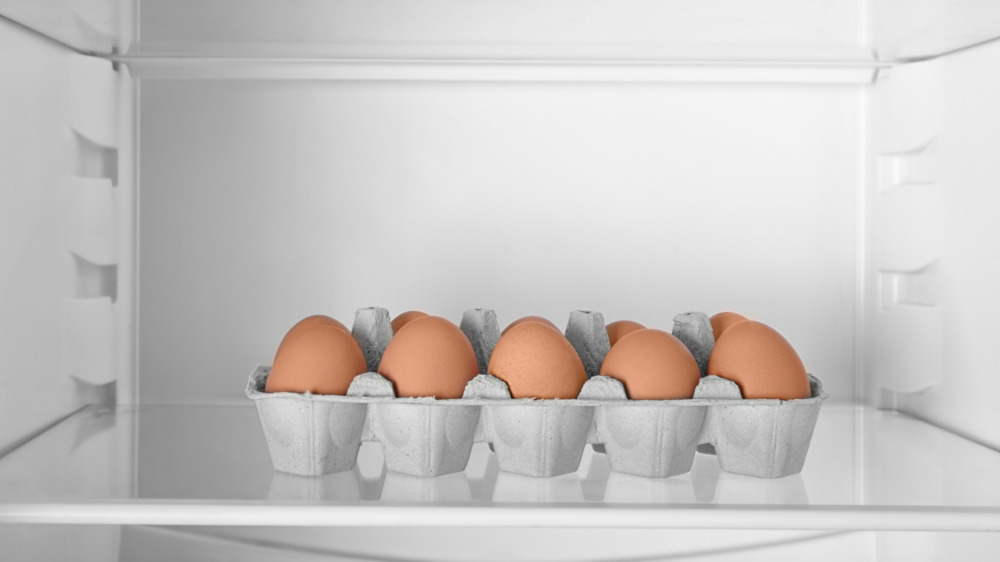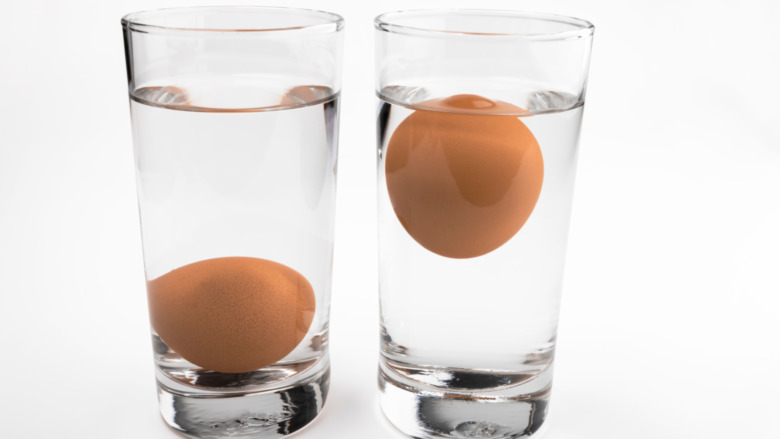Here's How Long Eggs Can Really Last
Eggs are a pretty good cooking staple to have stocked at all times. They're cheap, come by the dozen, are super quick and easy to cook, and make for a tasty, filling, and nutritious meal all by themselves. However, if worries about not being able to use all 12 before the expiration date stops you from stocking up, you might be surprised to learn just how long eggs can really last. In fact, the FDA says that you can use them up to three weeks after they're purchased, and the Egg Safety Center suggests they can be consumed safely up to five weeks from the date that they were packed. The trick to making them last longer: always keeping them refrigerated.
According to Healthline, eggs that are processed in the US (and some other countries) are almost immediately washed when they are laid to help prevent any chances of salmonella contamination. However, the washing process also weakens the cuticle, a protective layer that is supposed to prevent bacteria from entering. As a result, these germs can move through the shell more easily and contaminate the egg, which is what causes them to go bad. However, storing eggs in a refrigerator at a temperature below 40 F considerably slows the growth of bacteria and helps eggs last longer.
The trick to storing eggs properly
Healthline suggests that — when stored correctly — eggs rarely spoil, noting that "refrigeration is so effective at controlling the growth of bacteria that in combination with an egg's protective shell and enzymes, refrigerated eggs rarely go bad."
Even more important, when refrigerated eggs are left at room temperature, they will last less than two hours (per the USDA), so the FDA recommends buying only refrigerated eggs and not wasting any time before putting them in your fridge at home. Another tip: Keeping the carton on the middle shelf at the back of the refrigerator is better than that dedicated slot in the door. This is because the middle shelf has a more consistently cool temperature compared to the door, which is opened and closed very often (via Good Housekeeping).
You can freeze eggs too, according to Healthline, but not while still in the shell. Either crack the eggs and separate the yolk and whites or beat them together in a freezer-safe container and pop that in the freezer. Frozen eggs can last indefinitely, but you should use them within a year for best quality. And after thawing, use them within a week. While there may be no such thing as eggs going "bad," Healthline says that the quality of the eggs will certainly decline over time. The yolks and whites will become thinner and less springy as the air pocket in the eggs grow larger, eventually making them dry up.
How to tell whether an egg has gone bad
Since the expiration date on the carton is not the most reliable way of knowing whether eggs have gone bad, how can you tell whether your eggs are still safe to eat?
According to What's Cooking America, if an egg looks odd or smells like it shouldn't when it's cracked, it's a tell-tale sign that the egg has gone bad. But it might not always be as easy as that. In that case, they suggest trying one of two methods. The first test is the water test. Place your egg in a bowl or a glass of water and if it sinks to the bottom, your egg is good to go but if it floats, it's probably best to toss the egg in the bin. The publication explains that fresh eggs usually feel heavier and have a very small air cell.
To check the freshness of your egg with another method, simply crack your egg onto a flat plate. The white of a fresh egg will be thick and will stay close to the yolk. The yolk will be round, compact, and sit high up in the middle of the white. If the white is thinner and spreads far onto the plate and the yolk is flatter, your egg is probably not very fresh.
However, if your egg is somewhere in between fresh and not-so-fresh, The Spruce Eats says that you don't have to throw it out just yet. At this stage, the eggs are ideal for hard boiling. Since the air cell of the egg will be larger, there will be a bigger gap between the egg and its shell, making your hard-boiled egg incredibly easy to peel.


